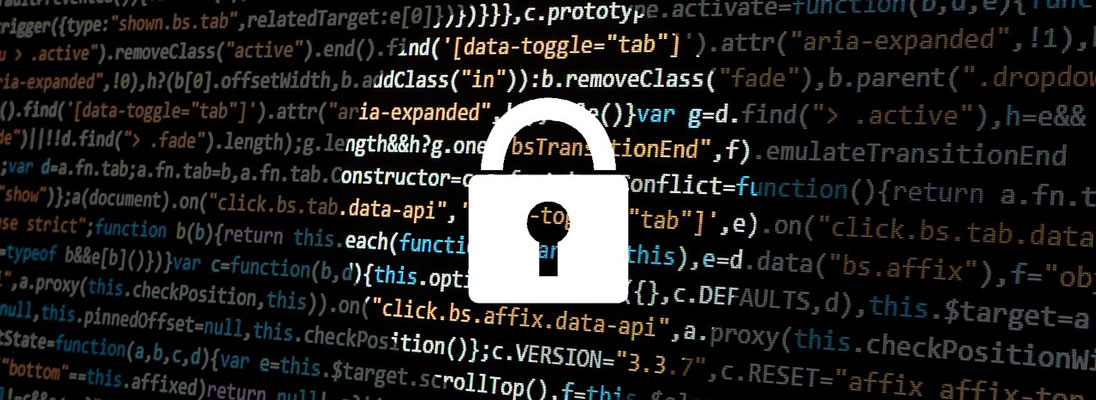
The constant digital connection makes online safety a notable concern for students, parents, and teachers. Learning and practicing solid cybersecurity habits is crucial to a positive college experience. Doing so will prevent you from computer viruses compromising important data, hackers hijacking your accounts, cyberthieves stealing your identity, and vengeful exes ruining your reputation, to name a few. In this guide, we will go over the best ways to keep your identity and information safe online.
General security & privacy tips
Regularly check bank and credit card accounts.
Thieves do not usually fully empty bank accounts, preferring instead to withdraw small amounts over a long period of time. Keep an eye on bank and credit card statements for suspicious charges.Back up your data regularly.
Losing data is the worst. Regularly storing important data in a place that is secure and convenient to recover will save a lot of headache in the future. Keep a record of accounts and passwords as well, in case they get wiped from your devices.Think before you click.
Never click on anything that looks suspicious. When in doubt, do a search before clicking on any link, or don't click at all if you don't have to. Shady links may lead to viruses.Use public computers wisely.
When using public computers make sure to log out and not to save any account information. For extra safety, browse on an incognito window or clear the browser cache when possible.Shop from secure websites.
Shop with caution. Watch out for fake stores, bait and switch listings, and suspicious storefronts. Check if a site is legitimate before trusting them with your personal and payment information. Always make sure your payment is secure by using a credit card or secure payment site (like PayPal).Keep security and anti-virus programs up-to-date.
If you don't have a security system in place on your devices get one ASAP! Windows 10 comes with Windows Defender built in, but you can also use reputable ones like McAfee, Norton, or Kaspersky. In addition to getting security software, frequently check and make sure that both the software and device firmware are up-to-date.Don't share your personal information
Be careful who you share your personal information with. Reputable institutions will not ask for your social security number by email. If you are asked for it, call the institution to verify exactly why they need it first. Be careful for sneaky attempts to get information like chain letter social media posts.Set up 'locate my device' on mobile devices.
Set up find my phone or find my device before you lose it. Both Android and Apple phones and tablets contain free tracking software. Some apps also have a feature to remotely lock down or erase information.Have a plan for if a breach occurs.
Hopefully you will never have to deal with a data breach, but having a plan in place will save you time and worry. If a data breach occurs change all passwords and monitor your bank statements closely.Use strong passwords.
Take the time to craft strong passwords for all accounts, especially the important ones like bank, email, and social media. Never share your password with anyone. There are several programs that can generate and store complex passwords for you.Be careful on public Wi-Fi
Public Wi-Fi are often unencrypted, and can be easily hacked to direct whatever you type through a gateway that hackers can see. Do not enter passwords or personal information on unencrypted connections, instead use your mobile data or wait until you get to a secure connection.Use a VPN.
Virtual private networks (VPN) encrypts your data on any connection you are using. A VPN is strongly recommended for public Wi-Fi or connects you feel are not secure. Be sure to pick a VPN service that is reputable. In general lifetime access, free, or extremely low priced services are not reliable.Set up two-factor authentication.
Two-factor authentication adds an extra layer of security to your accounts. With two-factor authentication you will receive a notification with a code when you try to log in on an unknown device After entering the correct code you will be able to log in as normal.Be careful with torrents
Though torrents are often used for illegal file sharing, they have legal purposes as well. Torrents are a great way to share large files quickly that can be downloaded at anytime. However viruses or malware can be hidden deep within a torrent, so only download torrents from sources you know and trust.
How to protect your identity
Be careful on social media.
Always think twice before posting on social media. Ask yourself if what you are posting could be harmful to yourself or others. Remember that everything you publish online lives forever, even if you choose to delete it later.Avoid phishing attempts.
Phishing is trying to get information voluntarily. Cyberthieves may impersonate your bank, coworkers, or boss. To avoid falling for a phishing attempt always triple check the senders email address and compare it to an official email address from the sender. If the email seems suspicious (wrong fonts, off looking logos, misspellings) call the sender directly to resolve any issues.Watch your accounts for suspicious activity.
In addition to regularly checking your bank accounts, check your credit often. This way you can lock or freeze your credit report if you suspect identity theft. Credit Karma will let you see your credit scores and changes to your credit reports.Be aware of dating scams.
Dating scams have tripled over the last five years! Keep in mind when online dating that people aren't always what they seem to be. They may use fake photos, names, and addresses. Never wire money to someone you meet online. Know that any pictures or text messages you send may be shown to a wider audience.
Further reading
